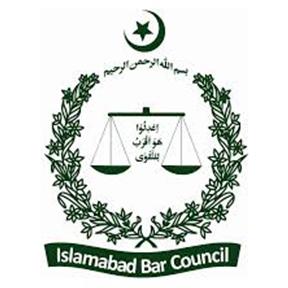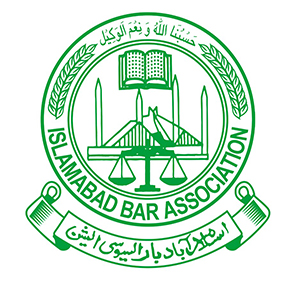USA
President Trump’s New Immigration Policy:
President Trump signed a slew of executive orders on Jan. 20, 2025. During the first 100 days of the new administration, we expect many changes from the U.S. executive branch that will impact immigration.
In the first week alone, executive actions were taken to try to curb birthright citizenship, reinstate enhanced vetting of visa applicants, lay the groundwork for future travel bans, restrict work authorization, eliminate humanitarian parole and other programs and strictly enforce U.S. immigration laws.
Stay informed of business immigration policies resulting from President Trump’s executive orders, memoranda and proclamations
Birth Right Citizenship:
On Jan 20, 2025, President Trump signed the “Protecting the Meaning and Value of American Citizenship” Executive Order (EO), which provides that: “It is the policy of the United States that no department or agency of the United States government shall issue documents recognizing United States citizenship, or accept documents issued by State, local, or other governments or authorities purporting to recognize United States citizenship, to persons: (1) when that person’s mother was unlawfully present in the United States and the person’s father was not a United States citizen or lawful permanent resident at the time of said person’s birth, or (2) when that person’s mother’s presence in the United States was lawful but temporary, and the person’s father was not a United States citizen or lawful permanent resident at the time of said person’s birth.” The EO applies to births 30 days after publication. Litigation challenging this policy has been filed in court.
On Jan. 23, a Washington state federal district court judge issued a nationwide temporary restraining order (TRO) against President Trump’s Executive Order (EO) limiting birthright citizenship.
Key Points:
- Judge John C. Coughenour of the U.S. District Court Western District of Washington at Seattle issued a nationwide 14-day TRO against President Trump’s “Protecting the Meaning and Value of American Citizenship” EO signed on Jan. 20, which sought to change the existing criteria for birthright citizenship established by the 14th Amendment of the U.S. Constitution.
- The plaintiff states challenging the EO in the federal district court include Washington, Arizona, Illinois and Oregon.
- The judge found that “there is a strong likelihood that Plaintiffs will succeed on the merits of their claims that the Executive Order violates the Fourteenth Amendment and Immigration and Nationality Act,” and that “the balance of equities tips toward the Plaintiff States and the public interest strongly weighs in favor of entering temporary relief.”
- The TRO does not stop the EO from going into effect as scheduled, but the judge will now consider arguments for a preliminary injunction.
Additional Information: The case is one of multiple lawsuits filed by Democratic attorneys general and immigrant rights organizations challenging the order.
The “Protecting the Meaning and Value of American Citizenship” EO directs agencies not to recognize birthright citizenship for a child born in the U.S. if the father is not a citizen or green card holder and the mother is either in the U.S. unlawfully or in the U.S. lawfully but temporarily
Affect of Policy on International students:
Day 1 executive actions did not directly impact students, but other executive actions could impact students.
All visa applicants, including those applying for student visas, will be subject to enhanced vetting pursuant to the “Protecting the United States from Foreign Terrorists and other National Security and Public Safety Threats” EO signed on Jan. 20, 2025.
USA
President Trump’s New Immigration Policy:
President Trump signed a slew of executive orders on Jan. 20, 2025. During the first 100 days of the new administration, we expect many changes from the U.S. executive branch that will impact immigration.
In the first week alone, executive actions were taken to try to curb birthright citizenship, reinstate enhanced vetting of visa applicants, lay the groundwork for future travel bans, restrict work authorization, eliminate humanitarian parole and other programs and strictly enforce U.S. immigration laws.
Stay informed of business immigration policies resulting from President Trump’s executive orders, memoranda and proclamations
Birth Right Citizenship:
On Jan 20, 2025, President Trump signed the “Protecting the Meaning and Value of American Citizenship” Executive Order (EO), which provides that: “It is the policy of the United States that no department or agency of the United States government shall issue documents recognizing United States citizenship, or accept documents issued by State, local, or other governments or authorities purporting to recognize United States citizenship, to persons: (1) when that person’s mother was unlawfully present in the United States and the person’s father was not a United States citizen or lawful permanent resident at the time of said person’s birth, or (2) when that person’s mother’s presence in the United States was lawful but temporary, and the person’s father was not a United States citizen or lawful permanent resident at the time of said person’s birth.” The EO applies to births 30 days after publication. Litigation challenging this policy has been filed in court.
On Jan. 23, a Washington state federal district court judge issued a nationwide temporary restraining order (TRO) against President Trump’s Executive Order (EO) limiting birthright citizenship.
Key Points:
- Judge John C. Coughenour of the U.S. District Court Western District of Washington at Seattle issued a nationwide 14-day TRO against President Trump’s “Protecting the Meaning and Value of American Citizenship” EO signed on Jan. 20, which sought to change the existing criteria for birthright citizenship established by the 14th Amendment of the U.S. Constitution.
- The plaintiff states challenging the EO in the federal district court include Washington, Arizona, Illinois and Oregon.
- The judge found that “there is a strong likelihood that Plaintiffs will succeed on the merits of their claims that the Executive Order violates the Fourteenth Amendment and Immigration and Nationality Act,” and that “the balance of equities tips toward the Plaintiff States and the public interest strongly weighs in favor of entering temporary relief.”
- The TRO does not stop the EO from going into effect as scheduled, but the judge will now consider arguments for a preliminary injunction.
Additional Information: The case is one of multiple lawsuits filed by Democratic attorneys general and immigrant rights organizations challenging the order.
The “Protecting the Meaning and Value of American Citizenship” EO directs agencies not to recognize birthright citizenship for a child born in the U.S. if the father is not a citizen or green card holder and the mother is either in the U.S. unlawfully or in the U.S. lawfully but temporarily
Affect of Policy on International students:
Day 1 executive actions did not directly impact students, but other executive actions could impact students.
All visa applicants, including those applying for student visas, will be subject to enhanced vetting pursuant to the “Protecting the United States from Foreign Terrorists and other National Security and Public Safety Threats” EO signed on Jan. 20, 2025.









